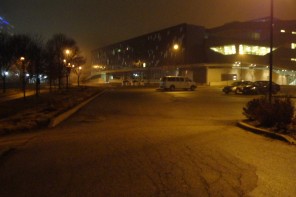The Airbnb side hustle
My daughter recently told me that the cost of taking an Uber is about the same as taking a taxi now. I’m certain that when Uber first arrived in Kitchener Waterloo the cost of a ride was near half of that of a taxi. Maybe I’m mistaken. As an industry disruptor, Uber at least has done a lot for making taxi ride taking a better experience.
I mention Uber because it reminds me a lot of Airbnb, a disruptor of another industry. Also those who take Uber are likely the same people who will stay in an Airbnb instead of a hotel.
Although I have never taken an Uber, I was an early adopter of Airbnbs. A friend who lives in Asia who was travelling in Europe five or six years ago told me about Airbnb and after my initial thought of “that’s a little weird” I was all in. I love the sharing economy. If someone has an apartment in downtown Paris, Taipei or Waterloo that they are not using, why not put it to good use and make a little money on the side?
Landlording vs Hosting
I’ve been a landlord for longer than I’ve been a Realtor. One of my rental properties was a two bedroom condo unit north of WLU – too far north to be attractive to students. For more than a decade I ran it like a traditional rental unit. I would find tenants, collect the rent and after a year or two or often three I would rinse and repeat. It was essentially a way to make some very passive income.
The rent was $1200/month.
Then late last year when the tenants got too far behind in the rent I decided to ask them to leave and when they agreed, I went in like I always had to do when tenants left and cleaned up, spruced the place up and this time instead of re-renting to a new set of tenants, I listed it on Airbnb.
I have another Airbnb in another part of town that pays the mortgage, taxes and utilities so I was curious if this condo unit would too.
It did!
I’ve since sold it, but in the months I was running it as an Airbnb it was generating near $3000/month – more than double the income that it generated as a straight rental.
But it is more work. So you may ask yourself is it worth it?
Airbnb vs straight rental. Is it worth it?
Passive income
Once you find good tenants, a rental property will mostly run itself. You can be in another city or another country. There might be some emergency repairs or maybe an occasional request for a late rent payment, but mostly you don’t have to anything but watch the rent money go into your bank account.
With an Airbnb you have to be around. You have to be available to let guests in when they arrive and to clean up when they depart.
Upkeep and repair
One of the hidden benefits of running an Airbnb is that your place gets cleaner and cleaner every month instead of getting dirtier and dirtier every month as it tends to do as a straight rental. As a long time landlord I know that with a rental property when a tenant leaves I will have to take a few days or weeks out of my time to go in and paint, clean and repair before I can rent it out again. With an Airbnb, you are in for 40 minutes after every guest leaves whereas with a tenant you can budget 40 minutes for every week or month they rent.
Guests vs tenants
Finally, since Airbnb is peer-to-peer review platform, before approving a new guest you can see what other hosts say about them. If their reviews as a guest are not good or if they don’t have any, you can decline.
And if you get a bad guest, you are only stuck with them for a day or three but with a bad tenant you are looking at months and months, landlord tenant court…
Some final advice
- Make sure you check your local city by-laws and your condo by-laws to ensure short-term rentals are allowed
- Get short-term rental insurance.
- Different neighbourhoods attract different kinds of guests. Think about why the visitors are visiting your city. In my case, as both the Airbnbs I ran were somewhat close to our two universities, I found that the majority of my guest were for some reason visiting UW or WLU.
- Claim the income in your taxes. The CRA will catch you if you don’t.
- Be prepared for busy times and lulls. The spring and summer will be busy. Fewer people travel in the winter.





